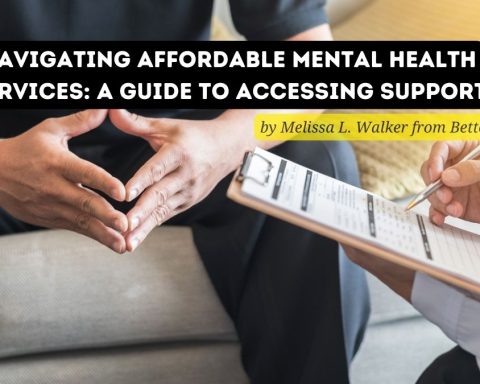Talking about depression can be difficult. Despite a lot of work being done by individuals and many social movements, many people still feel the stigma of depression when they talk about it. But that stigma arises not because there is anything terrible about depressed people, or their disorder, but rather from a lack of information and knowledge in our society.
Educating our friends and family about depression can be a great way to help decrease the stigma of the disorder.
One way to break down the stigma is to talk openly about struggles and treatments of depression. Every case is different, and no one is ever obligated to talk about their battles with the disorder, primarily to educate someone who is invalidating them. However, if anyone ever feels empowered to speak about their struggles or share their knowledge about the disorder and its treatments, it can be an admirable thing. If you ever find yourself in that kind of situation, we have some valuable points that you can use through the process.
Talking About Different Types of Treatment
When we talk about depression, people often want to know about treatment and what it looks like. The great, but perhaps tricky thing to explain, is that treatment can look different on everyone. Plus, given the fact that various treatments provide differing levels of success, it can be even harder to acknowledge.
When there are so many different individualized methods of treatment, it can be hard to stay knowledgeable, even inside the community of mental health sufferers. If those of us who attempt to remain in the know can also be behind sometimes, it becomes a bit easier to understand all the misunderstandings on the topic of depression. This is why talking about depression treatments can be a good first step in educating someone.
Traditional Methods: Talk Therapy and Medication
One of the most well-known practices for treating depression is meditation or talk therapy. Therapy sessions help to get to the root of an issue that might be causing the depression in the first place.
Other people rely on medication. Anti-depressants help to correct the imbalance of chemicals in the brain that can create depression. However, drugs don’t necessarily get to the root of a problem, which is why combining medication with other forms of treatment is often necessary.
Non-Traditional but Promising Alternatives
Alternatives to traditional talk therapy and medication also have become increasingly popular, and their effects are promising. One of these alternatives is Transcranial Magnetic Stimulation Therapy (TMST).
TMST is less well known, even in the mental health community. It involves magnets being placed on a patient’s head and combined with pulses of magnetic energy to activate dormant or sluggish sets of nerve cells in a patient’s brain. Transcranial Magnetic Stimulation Therapy has been shown to have an incredibly high success rate for depression treatment.
Issues with Information Accessibility
Another facet of talking about treatments for depression is discussing how the treatment is not always accessible for everyone. We can discuss this under the lens of tangible problems like cost and physical distance from limited treatment centers in non-metropolitan areas. It might also be important to acknowledge how it can be challenging to land on the right provider. Once people understand the various issues that depressed people face, they may become more sympathetic.
Starting the Conversation
It’s also crucial for people to know how the very stigma makes it difficult to be open to treatment. Pointing out how disdain for depression treatment can cause a problem worse for many is important. Many times, people may not realize they are hindering the health of others. They need that kind of behavior pointed out gently so that they can change.
A Final Word
All in all, these conversations can be difficult, but that doesn’t make them any less necessary. Educating our friends and family about the treatment of depression can be a great way to help decrease the stigma of the disorder across the world.








